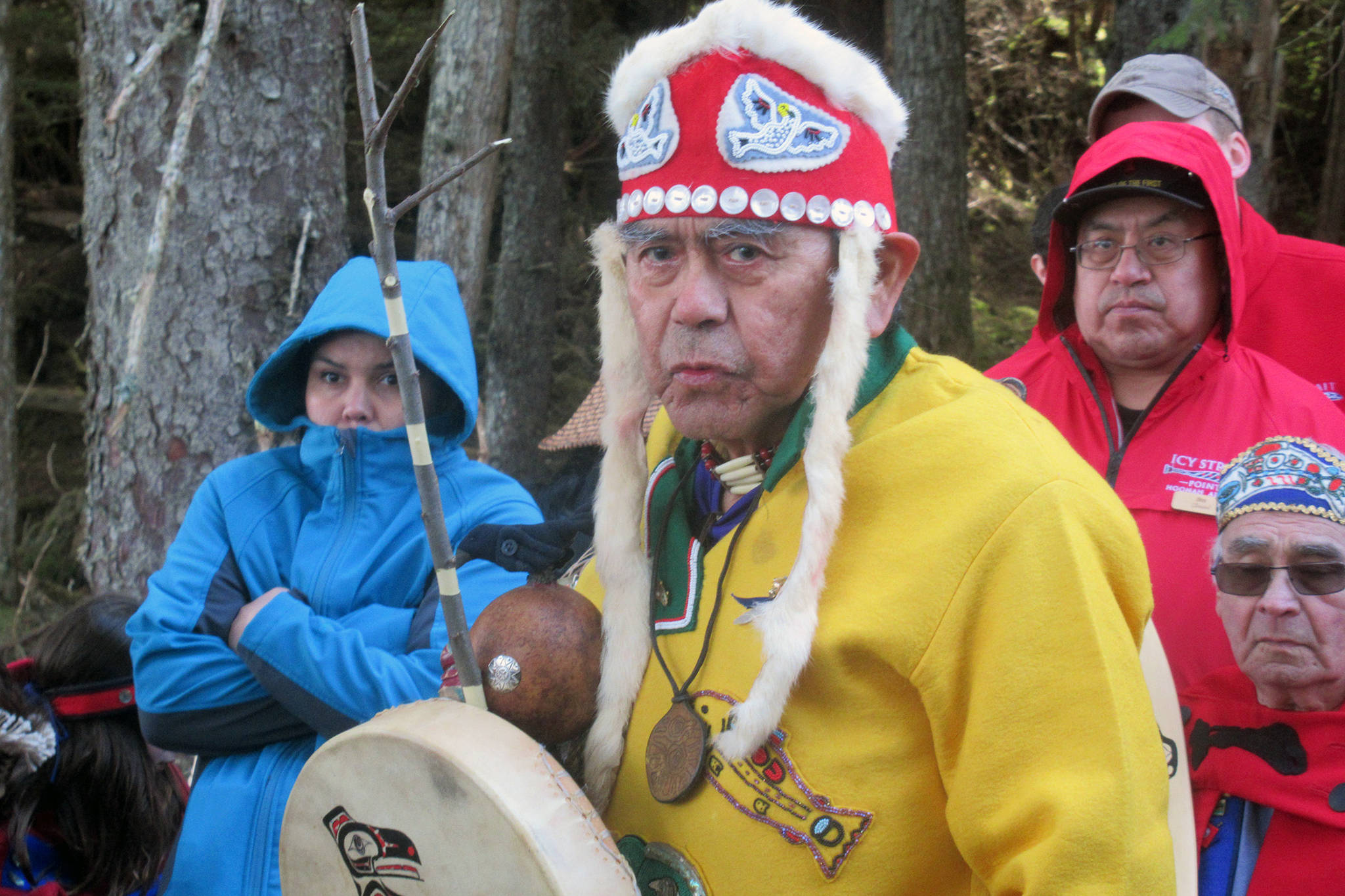“Yesterday brought word that the Hoonah Packing Company at Hoonah packed 115,000 cases of fish.” — Alaska Daily Empire, August 15, 1918
This brief 100-year-old news note about an Alaska salmon cannery hardly begins to tell the story of the importance of fishing and its relationship to the community of Hoonah.
As told in James Mackovjak’s local history of commercial seine fishing, Hoonah’s “Million Dollar Fleet,” salmon were more than the backbone of the economy. Fishing was an integral component of the culture that developed in this remote but rich region. Salmon provided nourishment and income and were the subject of much artwork. Fishing was a way of life.
Today, the history of that cannery and the culture of the people who made it successful are on full display.
The Huna Totem Corporation recently held a ground-breaking ceremony for a second cruise ship dock near the original cannery location at Icy Strait Point, the only privately-owned cruise port in Alaska. Icy Strait Point (ISP) and its location at Hoonah share a very strong and long connection with the Tlingit people that make it one of the most unique cruise destinations in North America.
Russell Dick, President and CEO, spoke at the ceremony that included a traditional Native blessing of the land. He stressed the Corporation’s commitment to “respecting the land” as part of their three pillars of leadership, “Value, Respect, and Community.”
Icy Strait Point includes, as its centerpiece, the carefully restored 100-year old cannery and cookhouse, now repurposed into a museum, restaurant and shops. At the dock, greeters in Tlingit regalia welcome visitors. Nature trails, adventure tours and Alaska Native storytellers all incorporate a glimpse into Huna Tlingit history and culture.
[Bill would make permanent Alaska Native Heritage Month]
Huna Totem Corporation (HTC), a for-profit Alaska Native corporation, opened ISP for operation in May 2004. The first year, ISP saw the arrival of 32 ships carrying 55,000 passengers — using tenders to bring them ashore. As cruise visits grew, operations and visitor attractions expanded. In 2016, a 400-foot cruise ship dock was added. In 2019, the town of Hoonah and its 760 residents expect to host 138 ships carrying over 250,000 cruise visitors. The proposed new dock, a collaboration between ISP and Norwegian Cruise Lines, will allow even further expansion.
The community of Hoonah, a largely Tlingit community on Chichagof Island, is located 30 miles west of Juneau. Well over 250 years ago, the Huna Tlingit people settled there after migrating from Glacier Bay — a place where they had lived for thousands of years.
In 1912, the Hoonah Packing Company built the first cannery in the area which today is Icy Strait Point. Ownership traded hands several times before the Icy Strait Salmon Company purchased the property in 1932. The cannery played a key role in the community throughout its history.
Battling rapidly changing weather, notoriously tricky tidal currents, and even icebergs, Hoonah seine fishermen were renowned for catching salmon in “the passes” that connect Icy Strait and Cross Sound.
The salmon seine fishery in Icy Strait lasted only a half century, barely two generations — and the last year of operation for the Hoonah cannery was 1953.
[Opinion: We are an Alaska Native corporation that backs Pebble Mine. Here’s why.]
Despite the increase of cruise visitors, the village of Hoonah remains largely unchanged. ISP’s operation remains geographically separated from town, and the majority of visitors explore the expanded cannery site or embark on various guided tours.
Yet, the economic benefits to local residents are substantial. Over 80 percent of ISP’s workforce, which is now approaching 200 people, are Hoonah residents. Profits from the ISP operation support substantial dividends for HTC shareholders and fund activities helping to preserve Tlingit history and culture.
ISP and the community of Hoonah have worked together cooperatively. The goal remains for development to provide maximum economic benefits to residents and shareholders while mitigating any impacts of visitors. This has been accomplished through the careful design and location of docks, transportation points, employee service areas, as well as the timing and method of handling visitor flows.
Hoonah’s new tourism economy provides sustenance and avenues for artistic expression — just like salmon always have. As a successful collaboration of industry and traditional Native culture, it presages an enriching future for generations to come.
• Win Gruening retired as the senior vice president in charge of business banking for Key Bank in 2012. He was born and raised in Juneau and graduated from the U.S. Air Force Academy in 1970. He is active in community affairs as a 30-plus year member of Juneau Downtown Rotary Club and has been involved in various local and statewide organizations. He contributes a regular column to the Juneau Empire. My Turns and Letters to the Editor represent the view of the author, not the view of the Juneau Empire.

